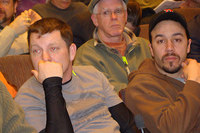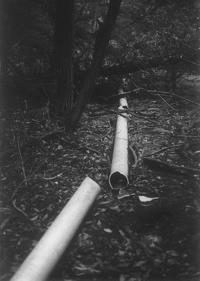 Apparently this WSJ opinion writer couldn’t actually argue with
Ed Markey’s net neutrality bill, so he made up a straw man:
Apparently this WSJ opinion writer couldn’t actually argue with
Ed Markey’s net neutrality bill, so he made up a straw man:
Imagine a town that has all sorts of gasoline pipelines running by it but only one gas pump. Rationing is inevitable. So are price controls.What’s especially amusing about this strawman is that it’s what the duopoly is planning as they do away with net neutrality, except it’s not first responders or governments that will get favored bandwidth: it’s Hollywood. Meanwhile, Markey’s bill doesn’t say any of that. It doesn’t include any regulation at all.Everyone gets equal amounts, except of course first responders like police and ambulances, which should get all the gas they want. And, well, so should the mayor. And if you can make a good business case that you work 60 miles away, you can file paperwork and perhaps pull some strings for more gas. How about those kids hot-rodding around town who can’t drive 55? They get last dibs, and maybe we can sneak in some gas thinner to slow down their engines and not waste gas.
— Internet Wrecking Ball, By Andy Kessler, Wall Street Journal, February 25, 2008; Page A15
Kessler invokes Orwell:
This is the essence of the Ed Markey’s (D., Mass.) Orwellian-named Internet Freedom Preservation Act of 2008, which would foist network neutrality on the wild and woolly Internet.Kessler maybe wasn’t around in the earlier days of the Internet, or he would know that net neutrality is what we used to have, until it got chipped away starting in about the year 2000, as the FCC failed to enforce the Unbundled Network Elements (UNE) of the Telecommunications Act of 1996, and reclassified cable modem access as an information service in August 2002, wireline broadband in August 2005, and wireless broadband in March 2007. The FCC stripped common carriage status from Internet provision, something never done before in the U.S. So what Markey’s bill is actually trying to do is to preserve the freedom the Internet used to have before the present administration and the duopoly systematically tried to do away with it. That’s the opposite of Orwellian: that’s the plain truth.
If Kessler did know Internet history, or had been around when we were making it, he would know not to write things like this: Continue reading

 Transparency via memo leak?
Transparency via memo leak?






